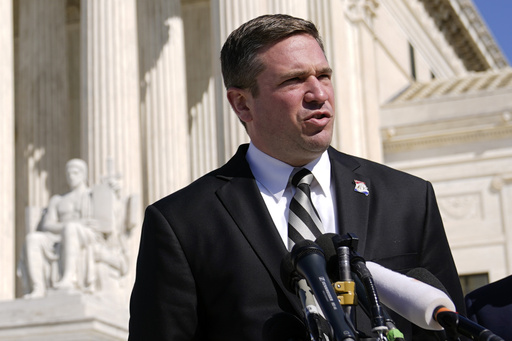KANSAS CITY, Mo. — Planned Parenthood aimed to restart abortion services at various Missouri clinics after a newly passed constitutional amendment was set to take effect on Friday, but their plans remain uncertain due to ongoing court disputes.
The complication stems from the fact that the amendment does not explicitly nullify existing state laws. Even prior to the Supreme Court’s decision that ended Roe v. Wade, Missouri’s strict regulations had left the state with only one operational abortion clinic located in St. Louis.
Missouri’s Republican attorney general contends that many of these pre-existing laws, including a mandatory 72-hour waiting period, should continue to be enforced despite the new amendment. Conversely, Planned Parenthood argues that these laws should be disregarded.
Prosecutors find themselves in a challenging position as they seek a preliminary injunction to halt the enforcement of older laws while legal discussions are underway. However, Judge Jerri Zhang from the Jackson County Circuit has yet to respond to this request.
Emily Wales, the president and CEO of Planned Parenthood Great Plains, stated in a press release, “As of today, Missourians have an unrealized constitutional right. They are entitled to access abortion under the state’s constitution, and every day they cannot get that care here at home, their rights are being violated.”
Here’s a summary of the complex legal situation and the current state of abortion access: Missouri is one of five states where residents voted to amend their state constitutions to include abortion rights. The amendment, approved by nearly 52% of voters, ensures individuals have the authority to make decisions regarding their reproductive health, including the choice to seek an abortion, use contraception, or undergo in vitro fertilization.
While the amendment is generally interpreted to prevent state restrictions on abortions up to the point of viability, advocates for abortion rights are tasked with convincing judges to prevent the enforcement of prior regulations.
“There were certainly people who thought the issue was decided after the vote — that we would have access,” Wales remarked on Friday. “We’ve had patients calling for weeks now saying, ‘Can I get in? Can I stay close to home?’ Of course, that’s not true.”
Reproductive rights activists are also pursuing legal action to challenge Arizona’s 15-week abortion ban that contradicts the newly approved right to abortion. Meanwhile, Maryland’s recently passed abortion rights amendment is not expected to create immediate changes, as the state has already permitted abortion access. Similar scenarios are evident in Montana, where abortion remains legal until viability, and Colorado has enshrined pre-existing rights while reversing a previous amendment that blocked state funding for abortion.
The day following the vote in favor of the Missouri amendment, two Planned Parenthood facilities requested a ruling to declare the state’s near-total ban and numerous abortion regulations unenforceable.
Though Attorney General Andrew Bailey has recognized that most abortions are now legal and stated he will not enforce the ban prior to viability, his office is still actively contesting the continuation of the 72-hour waiting period, prohibitions on abortions based on race, sex, or Down syndrome diagnoses, as well as a requirement for abortion-providing medical facilities to have ambulatory surgical center licenses.
This mixture of historical laws presents significant challenges for abortion providers, who argue that such regulations had already stifled access to abortion services across the state even before Missouri’s comprehensive ban became effective right after the overturning of Roe.
“We have already been living in a post-Roe world,” Dr. Iman Alsaden, the medical director at Planned Parenthood Great Plains, noted of the situation.
However, Missouri’s Solicitor General Josh Divine has defended these regulations, claiming they are crucial for ensuring women have adequate time to contemplate their decisions. “What we are trying to do is create a situation where women can in fact make the choice they want to do — and we know that most of the time that is childbirth,” Divine stated after a hearing this week.
Wales expressed her frustration with the ongoing legal battle, indicating that Missourians demonstrated their support for reproductive rights during the election. She criticized the Attorney General’s office for its persistent efforts to impede access to what she referred to as the new constitutional right to reproductive freedom for Missouri residents.




